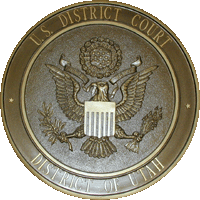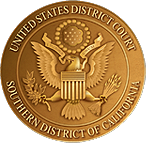
Michael Robertson is the founder and former CEO of MP3.com, an Internet music site. In the years following his departure from MP3.com Robertson has launched several companies, including Linspire, SIPphone, MP3tunes, and Ajax13. He is also founder of OnRad.io, a search engine for radio and DAR.fm, a website for recording audio from internet radio.

Eolas is a United States technology firm formed as a spin-off from the University of California, San Francisco (UCSF), in order to commercialize UCSF's patents for work done there by Eolas' co-founders, as part of the Visible Embryo Project. The company was founded in 1994 by Dr. Michael Doyle, Rachelle Tunik, David Martin, and Cheong Ang from the UCSF Center for Knowledge Management (CKM). The company was created at the request of UCSF, and was founded by the inventors of the university's patents.

SCO v. Novell was a United States lawsuit in which the software company The SCO Group (SCO), claimed ownership of the source code for the Unix operating system. SCO sought to have the court declare that SCO owned the rights to the Unix code, including the copyrights, and that Novell had committed slander of title by asserting a rival claim to ownership of the Unix copyrights. Separately, SCO was attempting to collect license fees from Linux end-users for Unix code through their SCOsource division, and Novell's rival ownership claim was a direct challenge to this initiative. Novell had been increasing their investments in and support of Linux at this time, and was opposed to SCO's attempts to collect license fees from Novell's potential customers.
NTP, Inc. is a Virginia-based patent holding company founded in 1992 by the late inventor Thomas J. Campana Jr. and Donald E. Stout. The company's primary asset is a portfolio of 50 US patents and additional pending US and international patent applications. These patents and patent applications disclose inventions in the fields of wireless email and RF Antenna design. The named inventors include Andrew Andros and Thomas Campana. About half of the US patents were originally assigned to Telefind Corporation, a Florida-based company partly owned by Campana.
The multinational technology corporation Apple Inc. has been a participant in various legal proceedings and claims since it began operation and, like its competitors and peers, engages in litigation in its normal course of business for a variety of reasons. In particular, Apple is known for and promotes itself as actively and aggressively enforcing its intellectual property interests. From the 1980s to the present, Apple has been plaintiff or defendant in civil actions in the United States and other countries. Some of these actions have determined significant case law for the information technology industry and many have captured the attention of the public and media. Apple's litigation generally involves intellectual property disputes, but the company has also been a party in lawsuits that include antitrust claims, consumer actions, commercial unfair trade practice suits, defamation claims, and corporate espionage, among other matters.
Uniloc Corporation is a company founded in Australia in 1992.

Alcatel–Lucent S.A. was a multinational telecommunications equipment company, headquartered in Boulogne-Billancourt, France. It was formed in 2006 by the merger of France-based Alcatel and U.S.-based Lucent, the latter being a successor of AT&T's Western Electric and Bell Labs.
Capitol Records, Inc. v. Thomas-Rasset was the first file-sharing copyright infringement lawsuit in the United States brought by major record labels to be tried before a jury. The defendant, Jammie Thomas-Rasset, was found liable to the plaintiff record company for making 24 songs available to the public for free on the Kazaa file sharing service and ordered to pay $220,000.
Microsoft has been involved in numerous high-profile legal matters that involved litigation over the history of the company, including cases against the United States, the European Union, and competitors.

Vringo was a technology company that became involved in the worldwide patent wars. The company won a 2012 intellectual property lawsuit against Google, in which a U.S. District Court ordered Google to pay 1.36 percent of U.S. AdWords sales. Analysts estimated Vringo's judgment against Google to be worth over $1 billion. The Court of Appeals for the Federal Circuit overturned the District Court's ruling on appeal in August 2014 in a split 2-1 decision, which Intellectual Asset Magazine called "the most troubling case of 2014." Vringo appealed to the United States Supreme Court. Vringo also pursued worldwide litigation against ZTE Corporation in twelve countries, including the United Kingdom, Germany, Australia, Malaysia, India, Spain, Netherlands, Romania, China, Malaysia, Brazil and the United States. The high profile nature of the intellectual property suits filed by the firm against large corporations known for anti-patent tendencies has led some commentators to refer to the firm as a patent vulture or patent troll.
Mirror Worlds Technologies, Inc., was a company based in New Haven, Connecticut, that created software using ideas from the book Mirror Worlds: or the Day Software Puts the Universe in a Shoebox...How It Will Happen and What It Will Mean (1992) by Yale professor David Gelernter, who helped found the company with Eric Freeman and served as chief scientist.
The smartphone wars or smartphone patents licensing and litigation refers to commercial struggles among smartphone manufacturers including Sony Mobile, Google, Apple Inc., Samsung, Microsoft, Nokia, Motorola, Huawei, LG Electronics, ZTE and HTC, by patent litigation and other means. The conflict is part of the wider "patent wars" between technology and software corporations.
Apple Inc. v. Samsung Electronics Co., Ltd. was the first of a series of ongoing lawsuits between Apple Inc. and Samsung Electronics regarding the design of smartphones and tablet computers; between them, the companies made more than half of smartphones sold worldwide as of July 2012. In the spring of 2011, Apple began litigating against Samsung in patent infringement suits, while Apple and Motorola Mobility were already engaged in a patent war on several fronts. Apple's multinational litigation over technology patents became known as part of the mobile device "smartphone patent wars": extensive litigation in fierce competition in the global market for consumer mobile communications. By August 2011, Apple and Samsung were litigating 19 ongoing cases in nine countries; by October, the legal disputes expanded to ten countries. By July 2012, the two companies were still embroiled in more than 50 lawsuits around the globe, with billions of dollars in damages claimed between them. While Apple won a ruling in its favor in the U.S., Samsung won rulings in South Korea, Japan, and the UK. On June 4, 2013, Samsung won a limited ban from the U.S. International Trade Commission on sales of certain Apple products after the commission found Apple had violated a Samsung patent, but this was vetoed by U.S. Trade Representative Michael Froman.
Uniloc USA, Inc. v. Microsoft Corp., 632 F.3d 1292, was a patent lawsuit originally filed in the U.S. District Court for the District of Rhode Island.
Finjan, Inc. v. Secure Computing Corp., 626 F.3d 1197 (2010), was a patent infringement case by the United States Court of Appeals for the Federal Circuit involving "proactive scanning" technology for computer security. The Federal Circuit made a mixed decision after hearing the appeals from both sides. In terms of infringement, the Federal Circuit affirmed Secure Computing's infringement on Finjan's system and storage medium patent claims but reversed the infringement on Finjan's method claim. In terms of damage award, the Federal Circuit not only affirmed the previous $9.18 million award by the United States District Court for the District of Delaware, but also remanded for the district court to assess the extra damages between the post-judgement and pre-injunction period.

VirnetX is a publicly traded Internet security software and technology company based in Zephyr Cove, Nevada. VirnetX has been described as being a patent troll, accused of marketing no actual products or services and instead earning its revenue through licensing patents and suing anyone that infringes them. The company has won intellectual property litigation against various technology companies. Kendall Larsen is the company's CEO.
Monsanto was involved in several high-profile lawsuits, as both plaintiff and defendant. It had been defendant in a number of lawsuits over health and environmental issues related to its products. Monsanto also made frequent use of the courts to defend its patents, particularly in the area of agricultural biotechnology.
Google has been involved in multiple lawsuits over issues such as privacy, advertising, intellectual property and various Google services such as Google Books and YouTube. The company's legal department expanded from one to nearly 100 lawyers in the first five years of business, and by 2014 had grown to around 400 lawyers. Google's Chief Legal Officer is Senior Vice President of Corporate Development David Drummond.
Romag Fasteners, Inc. v. Fossil, Inc., 590 U.S. ___ (2020), was a United States Supreme Court case related to trademark law under the Lanham Act. In the 9–0 decision on judgement, the Court ruled that a plaintiff in a trademark infringement lawsuit is not required to demonstrate that the defendant willfully infringed on their trademark to claim lost profit damages.






